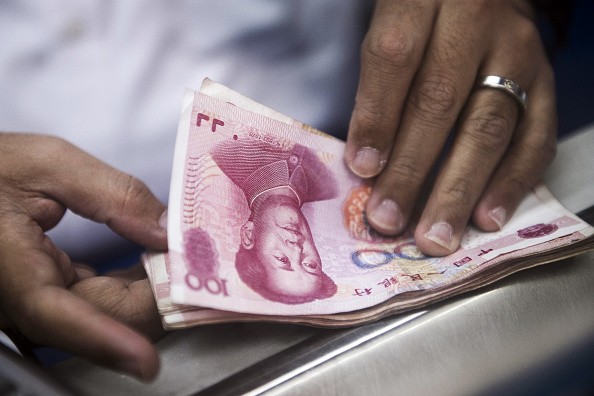The International Monetary Fund (IMF) has officially accepted the Chinese renminbi to be included in the bank's group of Special Drawing Rights (SDR) currencies, the bank announced on Saturday, Oct. 1, according to an article published by foreignpolicy.com.
China's currency will now join the IMF's elite club of the world's strongest national tenders, after years of liberalization, the report said.
The group of currencies with Special Drawing Rights uses a pseudo-currency to supplement countries' official reserves when needed. The value of the pseudo-currency is determined by the strength of each currency in the basket which includes the dollar, the pound sterling, the euro, the Japanese yen and now the Chinese renminbi.
For China, inclusion in the SDR basket is significant as a reward for China's efforts to open up its economy to foreign investment and influence but it is more symbolic in terms of market movement.
The IMF's inclusion is also important as it is an acknowledgement that the country is opening its doors to business and allows its economy to be subjected to the same forces of demand and supply that affect the American, European, Japanese, and British economies.
The IMF now believes that China is increasingly allowing market to determine the value of renminbi.
"The inclusion into the SDR is a milestone in the internationalization of the renminbi, and is an affirmation of the success of China's economic development and results of the reform and opening up of the financial sector," the People's Bank of China, the country's central bank, said in a statement.
In 2010, China applied to join the SDR but was rejected by the IMF because it said the renminbi was not widely used in international transactions or traded in international monetary exchanges at that time. In Aug. 2015, the IMF extended the SDR currency basket window to Sept. 2016, giving China more time to implement liberalization reforms.
A week after the IMF released its progress report in Aug. 2015, China allowed the renminbi to "float" for three days and like other currencies, allow demand and supply to determine its value. But the value of the renminbi decreased as the value of Chinese stocks dropped.
China also announced in Sept. 2015 the opening of its foreign exchange market to foreign central banks, allowing the U.S. Federal Reserve and the European Central Bank to make bets on the value of the renminbi.
In Oct. 2015, the People's Bank of China announced that it is planning to remove the caps on deposit rates, offering financial institutions a market-based rate of return, in contrast with the one determined by the Chinese central bank.
According to the report, renminbi's inclusion in the SDR basket does not mean that it will be replacing the dollar as the world's standard currency. The IMF decision does not also ensure that Chinese authorities will not refrain from meddling in the economy to keep the currency strong or stop massive stock losses.
"We believe that the Chinese authorities will remain committed to exchange rate flexibility and capital account liberalization over the long-term as they hope to internationalize the Chinese yuan but progress is likely to be gradual and bumpy," a team from BMI Research said in a recent research note.




























